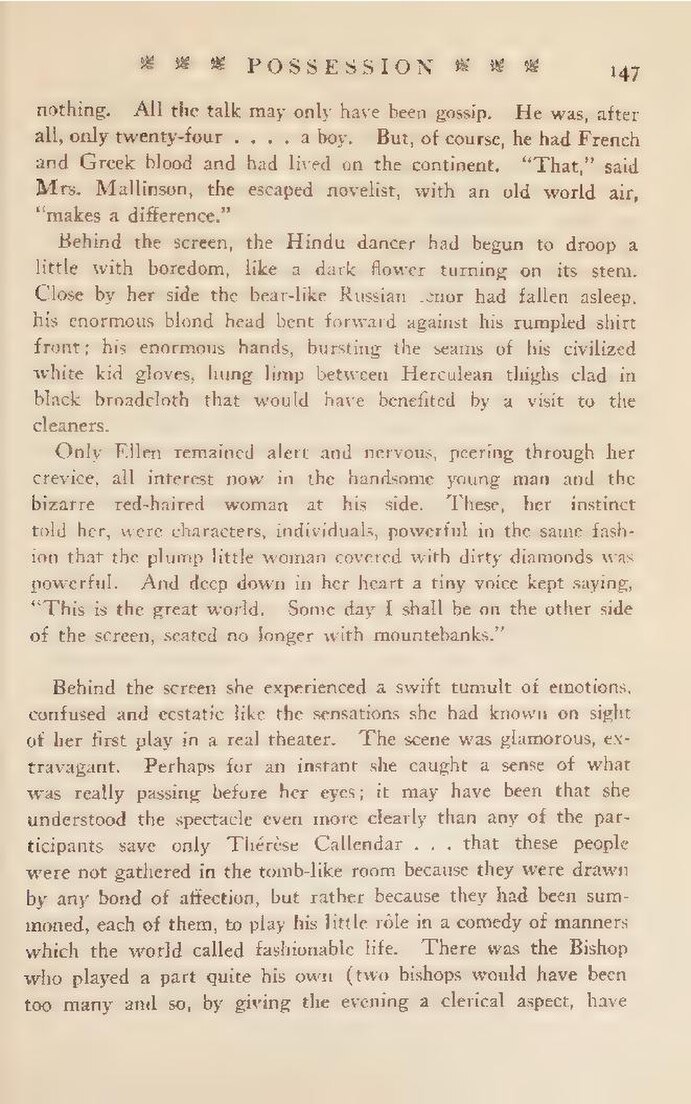nothing. All the talk may only have been gossip. He was, after all, only twenty-four . . . a boy. But, of course, he had French and Greek blood and had lived on the continent. "That," said Mrs. Mallinson, the escaped novelist, with an old world air, "makes a difference."
Behind the screen, the Hindu dancer had begun to droop a little with boredom, like a dark flower turning on its stem. Close by her side the bear-like Russian tenor had fallen asleep, his enormous blond head bent forward against his rumpled shirt front; his enormous hands, bursting the seams of his civilized white kid gloves, hung limp between Herculean thighs clad in black broadcloth that would have benefited by a visit to the cleaners.
Only Ellen remained alert and nervous, peering through her crevice, all interest now in the handsome young man and the bizarre red-haired woman at his side. These, her instinct told her, were characters, individuals, powerful in the same fashion that the plump little woman covered with dirty diamonds was powerful. And deep down in her heart a tiny voice kept saying, "This is the great world. Some day I shall be on the other side of the screen, seated no longer with mountebanks."
Behind the screen she experienced a swift tumult of emotions, confused and ecstatic like the sensations she had known on sight of her first play in a real theater. The scene was glamorous, extravagant. Perhaps for an instant she caught a sense of what was really passing before her eyes; it may have been that she understood the spectacle even more clearly than any of the participants save only Thérèse Callendar . . . that these people were not gathered in the tomb-like room because they were drawn by any bond of affection, but rather because they had been summoned, each of them, to play his little rôle in a comedy of manners which the world called fashionable life. There was the Bishop who played a part quite his own (two bishops would have been too many and so, by giving the evening a clerical aspect, have
